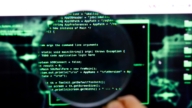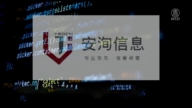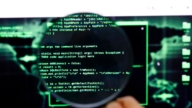【新唐人2013年09月11日訊】9號下午,中共最高法院、最高檢察院公布了《兩高關於辦理利用信息網路實施誹謗等刑事案件適用法律若干問題的解釋》,其中一項為誹謗罪設定的量化入罪標準,更是引發各界民眾的強烈反彈。分析認為,這是中共在打造壓制網路言論的恐怖氛圍,等於給網民裝了一個入罪的口袋,設了一道高壓線,阻止他們發表批評中共的言論和進行網路反腐。
「兩高」最新公布的所謂司法解釋共有10條,涉及8個方面的內容。其中第3條列舉了所謂「嚴重危害社會秩序和國家利益」的7種情形。另外,「兩高」還特別對中共最近網絡「打謠」運動做出了刑法司法解釋,認定網路誹謗信息被點擊5千次,或被轉發5百次,便視作「情節嚴重」,當事人因此可能入獄3年。
北京時政觀察人士華頗:「這個罪名是口袋罪,所謂擾亂公共秩序罪,這跟流氓罪一樣,只要中共政府認為你的言行對它有所危害的時候,它就會用這個罪名來處置你,這也是結合前一陣子打擊、抓捕一些網民的行動是相配合的。」
「兩高」的司法解釋一出臺,北京維權人士胡佳9號立即發推文說:「中共政法委書記孟建柱是黨國豢養的與周永康一樣狠的惡犬,這次即使整肅周永康也不過是狗咬狗。歡迎孟建柱起訴我誹謗他。希望我的話在國內國外被轉發500次,達到入刑標準。」
北京維權人士胡佳:「如果說它真要拿這條罪來制裁報復公民的話,我希望我成為被報復的第一個人,因為我這裏面直指孟建柱政法委書記,他掌握著國家警察、國家安全,法院、檢察院、監獄,這整套社會維穩系統,就是告訴他們,這條惡法我們根本不怕。」
中國「東南大學」法學院教授張讚寧指出,兩高把網路誹謗定性為刑法犯罪,是越權。
中國「東南大學」法學院教授張讚寧:「根據立法的規定,兩高只有解釋法律的權力,把法律沒有規定的東西認罪,等於侵犯了全國人大的權力,它這樣做實際上是在創造法律,完全是違法違憲的,所以我認為全國人大應當對這個解釋進行違憲審查。」
8月19號,中共總書記習近平在一次工作會議上強調,意識形態方面是中共的一項極端重要的工作。話音一落,中國各地公安配合中宣部緊急抓人,短短几天內,中共以網路造謠、傳謠為由抓捕了數千人。
胡佳:「現在來講很多官員受到強烈的批評,有些官員在任上,就受到網民的攻擊,它等於就是給你設了一道高壓線在那裏,實際上是製造一種網路上的恐怖氛圍,對言論的恐怖氛圍,對官員批評這方面的話,可以起到一種扼制的作用。」
張讚寧表示,對於網絡謠言和誹謗,受害人可以通過民事訴訟,提起侵權訴訟解決問題,當局根本不需要對這一行為動用刑法和公安系統。
華頗:「兩高的司法解釋是中國民主言論自由的一個大倒退,是力圖堵信廣大民眾的嘴巴,但是這種作法是非常危險的,如果不讓人民說話,人民就會用行動來說話。」
互聯網時代,中國的微博、論壇等網路自媒體上,各種信息迅速傳播,到處充斥著調侃及唾棄共產黨及其黨官的信息。
中國「權利運動」組織負責人胡軍:「我們可以看到現在這個局勢,中共本身來說,它已經看到了自己隨時要崩潰,所以用這種方式來壓制,它已看到在輿論這一塊『筆竿子』它徹底失守了,它這也是最後的一個垂死掙扎來挽回局勢,可是它這樣的做法恰恰造成了中共解體加速。」
9月10號,網路上熱傳一張月餅圖,上面刻著「打倒中共」、「趕走中共」、「痛恨中共」、「咬死中共」。
採訪編輯/李韻 後製/李勇
Chinese Internet Users Face Jail If Online Post Reaches 5,000 Hits
On September 9, China’s supreme court and
top procuratorate jointly issued interpretation
on new regulations on online rumors.
It indicates that an internet user could be jailed if his
post reaches a defined quota of views or re-posts.
This regulation triggered widespread debate from netizens.
Analysts believe that the Chinese Communist Party
(CCP) is creating an atmosphere of online terror.
This is to crackdown on online freedom of expression.
The regulation targets each netizen who could be
charged, and is forceful in labeling netizens as criminals.
It also prevents netizens from publishing
criticism and revealing corruption online.
The new regulation has 10 guidelines covering eight aspects.
The third interpretation has seven scenarios about
“severely harming public order and national interests."
The new regulation particularly
explains crackdown on online rumors.
It said the internet users could face three
years in jail if rumors have been read
5,000 times, or reposted 500 times.
Hua Po, Beijing current affairs commentator:
“The label of criminal is forceful, such
as mentioning “disturbing public order".
It is hooliganism on the part of the CCP.
If one says something is not good for the
CCP, they will charge you with a crime.
It links with recent online suppression,
and the arresting of netizens."
On September 9, Beijing activist Hu Jia tweeted on this topic.
“Meng Jianzhu, Secretary of the Politics and Law Committee,
is the CCP’s dog, and is the same as Zhou Yongkang.
The recent investigation over Zhou, is just like dogs fighting.
I welcome Meng Jianzhu to prosecute
me as I am slanderous about him.
I hope my words can be reposted 500 times
at home and abroad, to reach standard quotas."
Hu Jia:"If the CCP uses this rule as retaliation
on civilians, I hope I am the first one to be effected.
I directly spoke out to Meng Jianzhu, the boss of police,
public security, courts, procuratorates and prisons, and
the entire so-called “maintaining stabilization system".
I tell them that I am not afraid of this evil law."
Zhang Zanning, Professor at the Law School
of Southeast University in China, commented.
Zhang said that the authorities classified online rumors
as criminal charges, and they are not qualified to do so.
Zhang Zanning:"According to provisions of the
legislation, the Supreme court and highest
procuratorate only have the right to interpret law.
Now they have classified something as a crime,
but this is not listed in the law, and is violating
the power of National People’s Congress (NPC).
Their act actually creates a law,
and is against the constitution.
I think the NPC should carry out
judicial review of the interpretation."
On August 19, the CCP leader Xi Jinping
stressed ideological work is very important.
Subsequently, the police started arresting people nationwide.
Within a few days, several thousand netizens were
arrested on allegations of creating and spreading rumors.
Hu Jia:"Now many officials were criticized.
Some of the officials were still exposed
by netizens during their tenure.
The new regulations are like circling
public expression as a “hazard area".
Actually, they are creating an atmosphere
of terror against online freedom of expression.
It intends to restrict topics criticizing
officials, and it just plays such a role."
Zhang Zanning said that regarding online
rumors and defamation, the victims can
sue another party to solve the problem.
It is not necessary to use criminal
law and the public security system.
Hua Po:"The interpretation that Supreme
court and top procuratorate issued, indicates
freedom of speech has taken a step backward.
They intend to silence the public.
This move is very dangerous.
If people can’t speak, they will act."
Now is the internet era, and different information
is rapidly spread via China’s Weibo microblog,
online forums and other social networks.
It is full of information condemning the CCP and its officials.
Hu Jun, founder of Human Rights Campaign in China:
“From the current situation we can see that
the CCP senses it is the time of its collapse.
They are using this way to suppress public
expression, and know its propaganda doesn’t work.
This move is its last struggle of survival,
however, and only speeds up its collapse."
On September 10, a picture of a
mooncake was widely circulated online.
Some words had been written on it:"Down with the CCP",
“No More CCP", “Hate the CCP", “Kill the CCP".





























